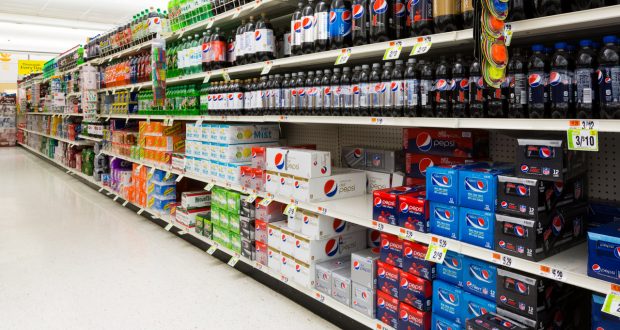By Edward Henderson | California Black Media
The California Department of Public Health (CDPH) and CalFresh Healthy Living, the state’s nutrition assistance program, recently launched a health campaign to illuminate the risks of drinking sugar-sweetened beverages and the health benefits of hydrating with water.
The “Not So Sweet Side” initiative encourages families to make informed decisions about the drinks they choose and to be aware of the sugar content present in them.
According to the campaign, consuming too much sugar has been associated with an increase in chronic conditions and diseases such as type 2 diabetes, heart disease and tooth decay. African Americans face a higher risk of developing diabetes mellitus, heart disease and tooth decay.
Dr. Redieat Assefa is a pediatrician at Riverside University Health Systems. She spoke at a webinar hosted by California Black Media introducing the campaign to ethnic media publishers across California.
Assefa underscored the importance of reading labels on sugary drinks you may consume and how to identify drinks that contain too much.
“When reading a nutrition label, there are a few key components that I would like us to consider. The first thing is the serving size of your sugary drinks. Is it one can? Is it one bottle? Then you go down to your total carbohydrates, which can be broken down to your fibers and sugary, added sugars or non-added sugars. Another part of the nutrition label is looking at the ingredients and the red flags. When reading ingredients, it’s going to be high fructose corn syrup, fruit, glucose, and sucrose. So those are the main ones that are harmful to our bodies when we have them in excess, of course.”
To simplify the process, compare the grams of sugar in a box of Apple Juice with preservatives that could be around 40 grams of sugar and that of natural juice which averages around 6 grams. The healthier choice is the 6-gram option due to significantly less added sugars.
Assefa also added that research indicates that African American women who drink one to two sugary beverages daily have an increased risk of type 2 diabetes. Sugary drinks can lead to high blood pressure, hype, and hypertension, contributing to a greater risk of heart disease among African American young adult men who, on average, consume sugary beverages at a higher level than other groups.
Assefa pointed out that there are about 10 teaspoons of sugar in a single can of soda.
Dr. Maxmillian Chambers, a dental professional and public health advocate, also spoke on the panel promoting the campaign highlighting the impact sugary drinks can have on dental health.
“As we continue this dialogue, it’s crucial to turn our focus to oral health, a key component of our overall well-being that doesn’t often receive the attention it deserves. Sugary drinks are a significant contributor to tooth decay. Research shows that drinking more than two eight-ounce servings of sugary beverages per week can drastically increase the risk of cavities. And for our youth, particularly those aged 9 to 18, sugary drinks are primary sources of added sugar in their diets.”
Chambers added that the issue is amplified when we consider that Black adolescents who consume high amounts of these beverages and brush their teeth no more than once a day are at a significantly higher risk of developing cavities.
Lakeysha Sowunmi, a mom and public health advocate who has worked to influence state policy and mobilize communities, including churches, around health issues, said, “I work with families on a budget, for example, and help them understand CalFresh and the resources that are available. We talk about portion control. We talk about feeding big families.”
Sowunmi, who is a founding member of the San Diego Women’s Affordable Housing Network, added, that making healthy food choices can seem like a luxury to families overwhelmed by housing insecurity. As she helps them find permanent or more affordable housing, Sowunmi says she continues to stress the importance of avoiding bad food choices.
The campaign recommends families set new health standards when it comes to the beverages consumed in the home. Flavored water alternatives for children returning from play, not ordering drinks during fast food stops, and increased awareness of sugar content in drinks are among their recommendations.
The CDPH and CalFresh believe that a community focused outreach effort ensures the ‘Not so Sweet Side’ campaign will reach diverse families across California. The CalFresh Healthy Living Program is led by CDPH’s Nutrition and Physical Activity Branch. To explore recipes, resources, and tips for making healthier beverage choices, visit http://uncoverhealthyhabits.com/
 Westside Story Newspaper – Online The News of The Empire – Sharing the Quest for Excellence
Westside Story Newspaper – Online The News of The Empire – Sharing the Quest for Excellence





